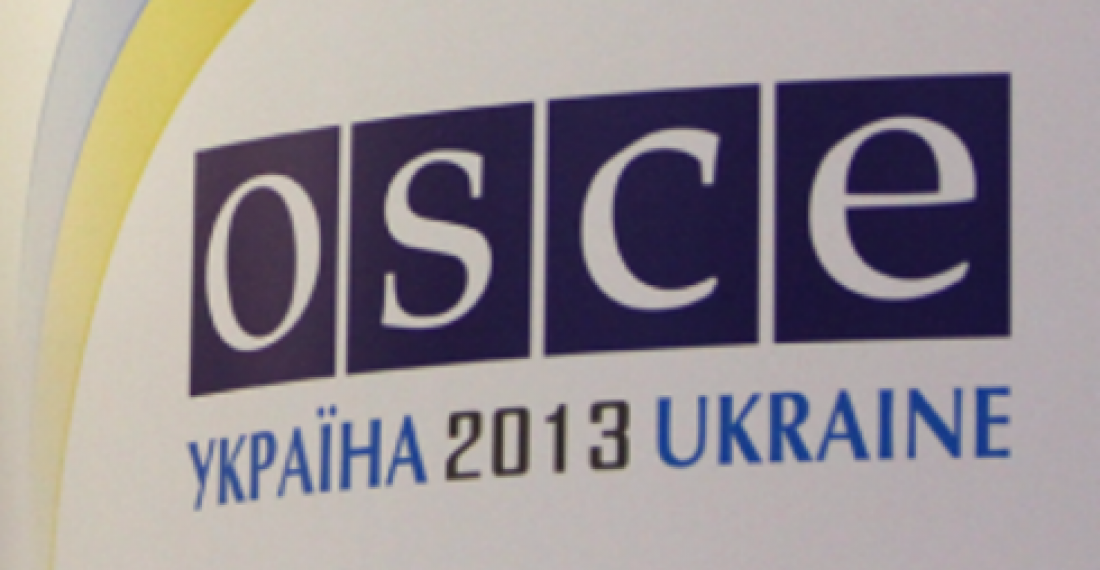Opinion: Commentary by Dennis Sammut on the meeting of the Ministerial Council of the OSCE which opens tomorrow in Kiev.
Foreign Ministers from the fifty seven member states of the Organisation for Security and Co-operation in Europe (OSCE) arrive in the Ukrainian capital Kiev ahead of the Organisation's annual Ministerial Council. Ukraine has held the Chairmanship of the OSCE for this year, and thus gets to host the meeting. The Ministers will sail straight into the current political crisis in Ukraine which has seen hundreds of thousands of people protesting against the decision of the Ukrainian leadership to give in to Russian pressure and not sign an Association Agreement with the European Union.
Ukraine's chairmanship of the OSCE has been largely uneventful and certainly not very inspiring. It has been unable to achieve any major breakthroughs on any of the OSCE's many challenges in the political and security space which stretches "from Vancouver to Vladivostok". On the other hand Ukrainian diplomacy has been able to avoid major gaffes and dealt with problems as best as it could as they arose. Ukraine has certainly failed in the one area where there were hopes that it could make a difference, namely ensuring a more positive Russian engagement with the organisation. This was however hardly the fault of Ukrainian diplomacy.
The presence of so many European Foreign Ministers in Kiev at this point is not something that the Ukrainian government will feel happy with. Criticism of its handling of the demonstrations on the main squares of Kiev over the last days has been increasing in tone since Saturday. The US Secretary of State and the Secretary General of NATO are among those who added their voices to the criticism over the last twenty four hours. Secretary of State Kerry has decided to snub the Ukrainian government and not attend the OSCE meeting. He will go instead to Moldova in an act of solidarity and support for that country's decision not to give in to Russian pressure and go ahead with its Association arrangement with the EU.
The OSCE Ministerial Meeting will focus on a number of challenges that face the organisation - from the future of arms control treaties to election monitoring. It will set the tone for the next two years, when Switzerland and Serbia will hold the chairmanship in an unusual "combined effort". There is a sense of relief in diplomatic circles that a safe pair of Swiss hands will take over the leadership of the organisation at this stage. Whilst nobody wants to admit it, the OSCE is facing an existential crisis, and unless it uses these two years to address some of its key problems the 40th anniversary of the Helsinki Final Act - the bedrock on which the organisation is build, will be more of an epitaph than a beacon for the future.
What the Ukrainians have not done, the Swiss must. Engaging Russia sufficiently to entice it to snap out of its current "forward to the past" mode will be by far the most important task. There are others, including making the organisation more relevant for conflict resolution and prevention in the Eurasian region and solving the stand off on election monitoring. Georgia still offers the organisation with an immediate challenge. The failures of the organisation in the run-up to the 2008 Georgia-Russia War, and its subsequent inability to even restore its own presence on the ground says a lot about the organisation. The Russians who have always tried to push the OSCE as an ideal security framework have ironically done most in recent years to weaken the organisation.
Revitalising the Nagorno-Karabakh peace process will be another important task. The Foreign Ministers of Armenia and Azerbaijan will meet in Kiev tomorrow on the margins of the OSCE Ministerial Meeting. It is good that the two sides are talking again, but this does not mean that we are nearer to a solution of the conflict. Earlier this week in Armenia, Russian President Putin spoke about managing the Nagorno-Karabakh conflict. He did not speak about solving it. Freezing conflicts has become a Russian speciality. The work of the OSCE Minsk Process needs to be put under greater scrutiny both within the councils of the OSCE and in the wider international community.
Helsinki +40 offers an opportunity for soul-searching and reflection. It must not stop at that. There must be action at the end of the process.
There is still a need for the OSCE, but the organisation must live up to expectations and those responsible for doing that are the governments of its member states.
Dennis Sammut contributed this op-ed for commonspace.eu He may be contacted at dennis.sammut@spc.ox.ac.uk






